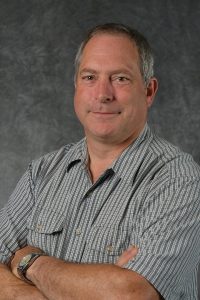Short Course at ECS meetings
This course covers the basic theory and application of electrochemical science. It is targeted to people with a physical sciences or engineering background who have not been trained as electrochemists, but who want to add electrochemical methods to their repertoire of research approaches. There are many fields in which researchers originally approach their work from another discipline but then discover that it would be advantageous to understand and use some electrochemical methods to complement the work that they are doing.
The course begins with a general, basic foundation of electrochemistry and uses it to develop the theory and experimental approaches to electrochemical problems of a thermodynamic nature. It complements a sister course, “Fundamentals of Electrochemistry: Basic Theory and Kinetic Methods,” offered alternately by the same instructor. The two courses have different emphases. Each is designed as a stand-alone introduction to electrochemical fundamentals. If both courses are desired, they can be taken in either order.
Topics to be covered
- Introduction and overview of electrode processes
- Electrochemical thermodynamics
- Reference electrodes, standard potentials, cell potentials, Nernst equation, electrode-solution interface, and double-layer structure
- Ion-selective electrodes, applications in analytical electrochemistry and sensors, aqueous and non-aqueous systems
- Electrochemical stoichiometry (Faraday’s Law)
- Coulometry, bulk electrolysis
- Theoretical basis for methods
- Surface tension, adsorption and adsorption isotherms, electrocapillarity, potential of zero charge, Lippmann equation
- Methodology
- Potentiometry, differential capacity, coulometry, cyclic voltammetry, polarography
- Electrochemical instrumentation
- Voltmeters, ammeters, potentiostats, galvanostats, design of electrochemical cells
- Coupled characterization methods (time permitting)
- Modified electrodes, spectroelectrochemistry, in-situ neutron scattering, surface analysis, etc.
About the instructor
 Dr. James Noël, Associate Professor of Chemistry, University of Western Ontario (UWO), Canada, is an electrochemist and corrosion scientist. He obtained his BSc and MSc degrees from the University of Guelph, supervised by Dr. Jacek Lipkowski. He then worked on corrosion issues in the nuclear industry while employed by Ontario Hydro Research and later Atomic Energy of Canada Limited (AECL). While at AECL, he earned his PhD at the University of Manitoba, Canada, with David Shoesmith and Hymie Gesser as supervisors.
Dr. James Noël, Associate Professor of Chemistry, University of Western Ontario (UWO), Canada, is an electrochemist and corrosion scientist. He obtained his BSc and MSc degrees from the University of Guelph, supervised by Dr. Jacek Lipkowski. He then worked on corrosion issues in the nuclear industry while employed by Ontario Hydro Research and later Atomic Energy of Canada Limited (AECL). While at AECL, he earned his PhD at the University of Manitoba, Canada, with David Shoesmith and Hymie Gesser as supervisors.
Dr. Noël joined UWO as a research scientist in 1998 and became a faculty member in 2016. He uses electrochemical and other surface analytical techniques to study the corrosion of industrial materials, especially nuclear waste management systems components, including those made from carbon steel, titanium, zirconium, copper, nickel alloys, and the uranium dioxide fuel itself. He continues to refine techniques that combine electrochemical measurements with neutron-based materials science techniques and other surface analytical methods.
Dr. Noël received the ECS Canada Section’s 2003 Lash Miller and 2018 R. C. Jacobsen Awards. He is an active participant in public science outreach activities, developing and presenting chemistry demonstrations for potential young scientists from preschool to high school. He has co-authored over 110 journal articles, 60 conference proceedings papers, six book chapters, and 20 company reports.
